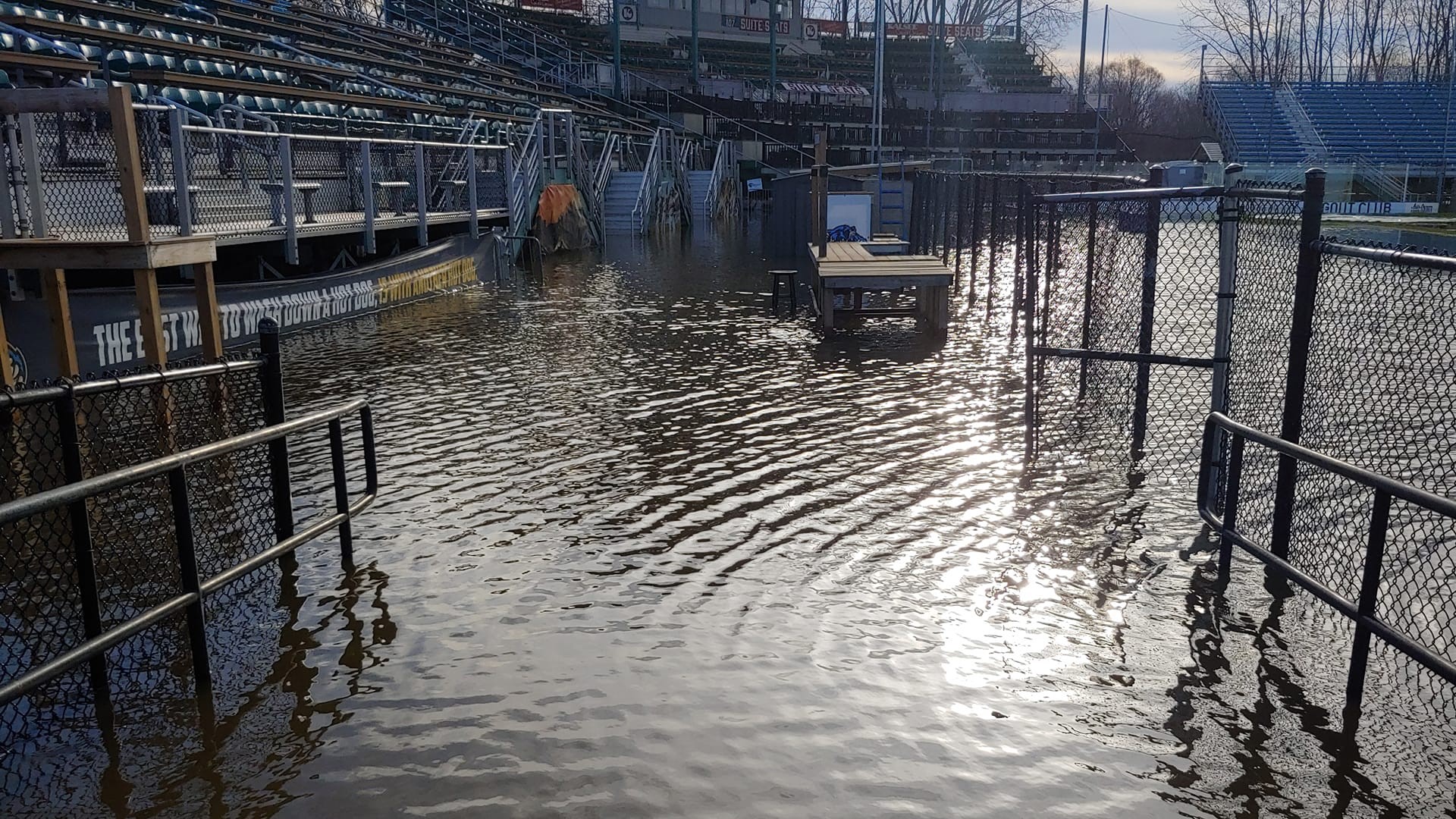KALAMAZOO, Mich. — If the Kalamazoo Growlers want to practice on their home field anytime soon, they'll need to grab some waders.
The Northwoods League team shared some photos Thursday morning with the caption "We are officially underwater."
It would appear so!
Stryker Field in Mayors' Riverfront Park is looking more like a lake than a baseball field Thursday morning.
The field does have some time to drain and dry out before the Growler's next home game, which is scheduled for May 31 against the Battle Creek Battle Jacks.
Director of Stadium Operations Tom Olds said there will be enough time to get the stadium in shape for that game.
"It'll take a few days for the water to be pumped out of the stadium and back into the Kalamazoo River," Olds said. "Once the water's removed, it'll take us multiple weeks to do restoration, recovery and cleaning of the stadium."
He said spring floods are very common, and that stadium staff have come to expect them every other year or so.
The Kalamazoo River, alongside many other West Michigan rivers, is full of rainwater after days of storms.
The National Weather Service is expecting several rivers in West Michigan to be at or near flood stage by the end of the day on Friday.
During floods
- Stay out of flood waters. Flood water moves faster than it appears and can carry debris, which might injure you. Additionally, there is a danger of electrical shock from downed and exposed power lines. Children should never play around high water, storm drains, or viaducts.
- Avoid driving in flood water as vehicles can easily be swept away. If you are stranded and surrounded by flood waters, call or text 911 immediately.
- Flood water can be dangerous to your health. According to the Centers for Disease Control and Prevention (CDC), flood water can contain dangerous bacteria and other pollutants, including raw sewage.
- If flooding does occur in your area, avoid contact with flooded areas and wash up if contact does occur. Listen to public announcements or contact your local health department to find out if your tap water is safe to use.
- The Michigan Department of Health and Human Services (MDHHS) encourages Michiganders who get their drinking water from wells to get their well water tested following a flood event. More information is available by calling the MDHHS Drinking Water Hotline at 844-934-1315.
You can monitor river level forecasts of a particular river or geographical area here.
►Make it easy to keep up to date with more stories like this. Download the 13 ON YOUR SIDE app now.
Have a news tip? Email news@13onyourside.com, visit our Facebook page or Twitter. Subscribe to our YouTube channel.

